Celebrating Another Year: A Day for Gratitude
Emanuela’s birthdays are more than just milestones; they honor her resilience and our journey as a family. Despite lingering fears, hope and gratitude shine brightly as our baby girl blows out seven candles this year, a testament to her strength and life itself.
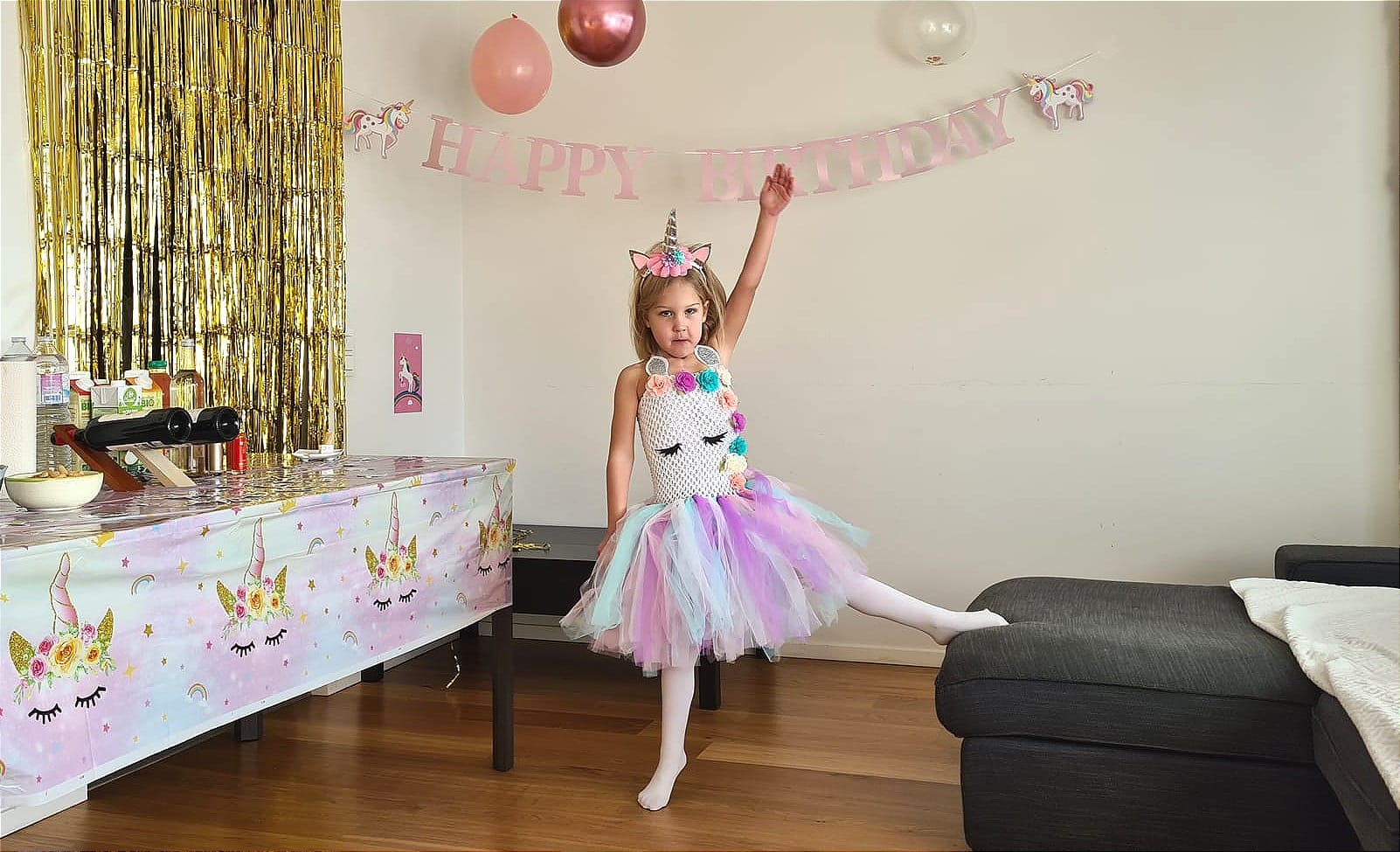
Every year, come January 18, we celebrate, remembering the moment Emanuela popped into our lives and changed us.
We expect more than 20 kids to storm our home this Saturday to celebrate Emanuela's 7th birthday. Last year, people called me brave for entertaining 32 six-year-olds by myself, but I know what they meant was not brave, but - crazy.😊
Emanuela's fifth birthday was actually the first we celebrated with her friends. The years before, having children gathered indoors during a winter month posed too big of a risk for her. And also, there were two seasons of COVID. But be it a big or a small party, her birthday will forever be a day of deep gratitude that she made it through another year.
It's hard to explain why it feels this way.
I’ve been holding my fingers on the keyboard for some time now, staring into the void without typing a single letter, just thinking: But "the worst" is behind us. She is a thriving young girl. Overall, life has slowed down. Medically, she is stable and performing against all odds, and yet... I catch myself flushed with both pride and a sort-of-sadness when she blows her candles. With a big inhale of my own, I stop for a moment, cherishing her and - feeling grateful.

How do I explain a shadow of a thought - a lingering awareness of subtle grief for life I imagined but didn't get to have, and the fragility of a wonderful life I couldn't even dream could be? How do I explain emotions that don't control, guide, or shape our daily lives, yet remain an ever-present companion in my mind and heart? How do I explain, without sounding dramatic (or morbid), just how humbling each of her birthdays is in the face of her being a smart young girl, with a stable heart, a good Fontan circulation, catching up with her peers against all odds? No one expects her life to turn upside down - at least not any time soon, as her cardiac team reassures us.
So, if we're to say we have a "healthy" or "normal" child, as the non-CHD community might see her, why is my first thought in the moment candles' flames turn to smoke: "Yes! We made it!"
I've written about receiving the diagnosis, preparing for what lay ahead, and assembling questions and whom to ask. But to unpack these feelings, I have to dig deeper - to the first days after giving birth to a firstborn child with a serious Congenital Heart Defect (CHD). What we thought would be days or weeks, at most, turned into months of catching straws and fighting for a life to be. Those moments shaped us - our way of thinking, our way of feeling, our way of living.
The Kick-Off of 2018
As it usually goes, the avalanche that became our life started before we fully realized what hit us. It was New Year's Eve. Dinner with friends was lovely. I still see us sitting at the window table in a fancy part of the city, watching people strolling the promenade along the Danube. We were laughing, enjoying the last days of being as carefree as one could be while burdened with the unknown that would soon crash down.
The morning of January 1, instead of heading back to work, my husband drove me to the emergency room. I was so itchy during the night that I wanted to skin myself. A few hours later, I was diagnosed with cholestasis - a liver condition that develops late in pregnancy and can be harmful to both mother and baby. Given my chart was already marked with "expecting a CHD baby," I was immediately hospitalized.
The thing with CHD babies is that while their birth should be, ideally, planned to ensure all specialists are on duty, it's also best to keep them in utero as close to term as possible. Their lungs benefit most from the extra time, and knowing our baby girl would have to fight for her heart, we wanted to spare her the battle for her lungs. I stayed in the hospital for nine days, receiving medications to boost her lungs and give her the best fighting chance. Then, they let me go home, hoping for the best and preparing for the worst - a mantra that would guide us for years to come.
My due date was January 20, a Saturday. To ensure all of her cardiac team was available, we scheduled the birth for Friday, January 19. We had ten days of pretending no mountain was about to crash on us.
I was instructed to stay vigilant and to come back if anything, at any point, started feeling strange. Feeling miserable, sore, and huge, to put it mildly after gaining 25kg in nine months, did not count. Side note: That also didn't prevent me from having a "last feast" at the best burger joint in town, followed by a massive slice of cake. I came home from that lunch - bleeding.
The Day Everything Changed
I figured heavy bleeding was "strange" enough to call the doctor. Within an hour, I was hospitalized - 2cm dilated. Ready to rock 'n roll.
I like to think the hospital machine worked like a Swiss clock that Wednesday, January 17 - that everyone was informed I was in the house, from maternity to emergency and paediatric cardiac wards. I imagine them ready for the longest shift, calling home to cancel dinner plans, channeling a "beautiful day to save lives" vibe (Grey's Anatomy fans, anyone?). Today, I'm almost certain none of that happened. I just hope they kept their phones on. (How I wish I could write it were pagers! 😏 )
As late afternoon turned to night, there was still no action. No contractions, no water breaking, no hurry from the baby. By 7 AM the next morning, the doctor decided to induce the labor and not wait for Friday.
For almost two hours, nothing happened. I started hoping I might be one of those lucky ones who "didn't feel a thing" and "the baby just popped out." Yeah right!
(from my diary written at the time)
Once the induction kicked in, all hell broke loose. I am being told, though, that giving birth within three hours is also - lucky.
At 12:13 PM, on Thursday, January 18, 2018, we became parents.
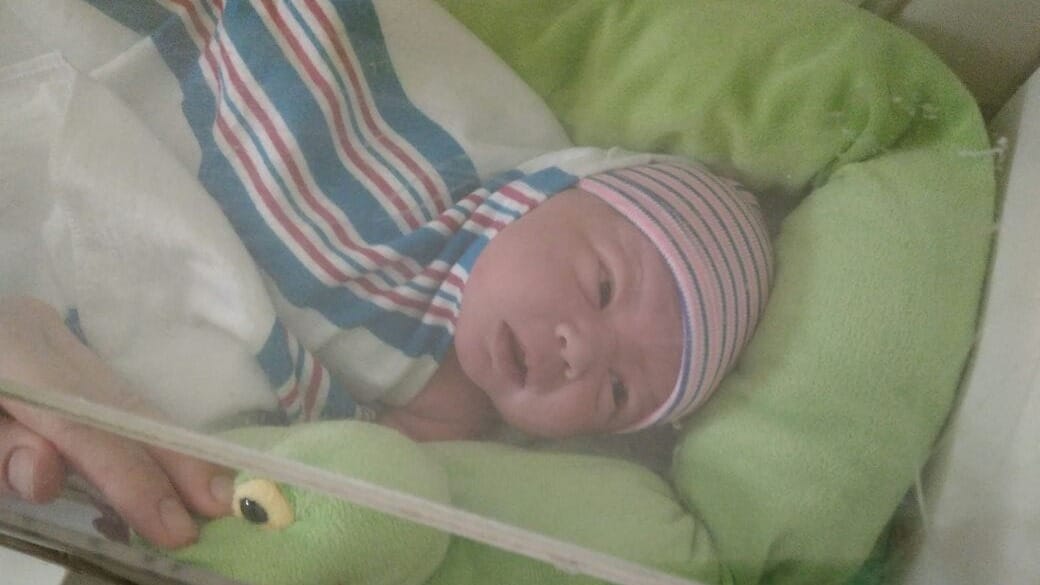
Life Unimagined
They took her away immediately. No skin-to-skin bonding. No glimpse of her tiny face. I only caught a tuft of her thick black hair, and she was out of my sight. My husband followed her as we'd planned. After being instructed where he would find her later in the day, he returned with a picture of her lying in the incubator, ready for transport.
She was the cutest baby I'd ever seen. Honestly. ❤️
Two days later, I touched her for the first time. In the days between, there was an emergency baptism, as we'd arranged before, and we let doctors and nurses do the rest.
Then it started... First came newborn jaundice. No big deal, right? Wrong. I had no capacity for surprises. And I had no idea our life would become an endless string of them.
Next came tachycardia. What's that now? I spiraled, trying to focus on the "real" battle ahead: her first open-heart surgery. That's what I was getting ready for during the months of my pregnancy. But then, even there, options changed daily - surgery, catheterization, surgery again. My heart jumped to hope and sank to despair at a pace that left me feeling I'd developed arrhythmia myself.
While clinging to every touch, kiss, smell, and good moment with my baby, I turned to my diary to keep track of it all. Everything: numbers on her monitors, meds, feeds, moods, cries, poops, smiles, even the way she slept (or didn't).
Two weeks in, she was in semi-intensive care. Waiting for decisions, waiting for life to begin.

Emotional Roller-Coaster
Emanuela was 20 days old when we kissed her goodbye and entrusted her to God and a surgeon. Expecting, as of tomorrow, everything will start going better and better. Until the next surgery. But that was still months down the road.
That was the last day her body was unscarred.
The surgery went well, but there were post-surgical complications, they'd brief us. My body froze. We saw her heart beating through an open wound. They were not able to close her chest. Swollen. Abdominal bleeding. Life-support (ECMO). What's that now?! My mind spiraled.
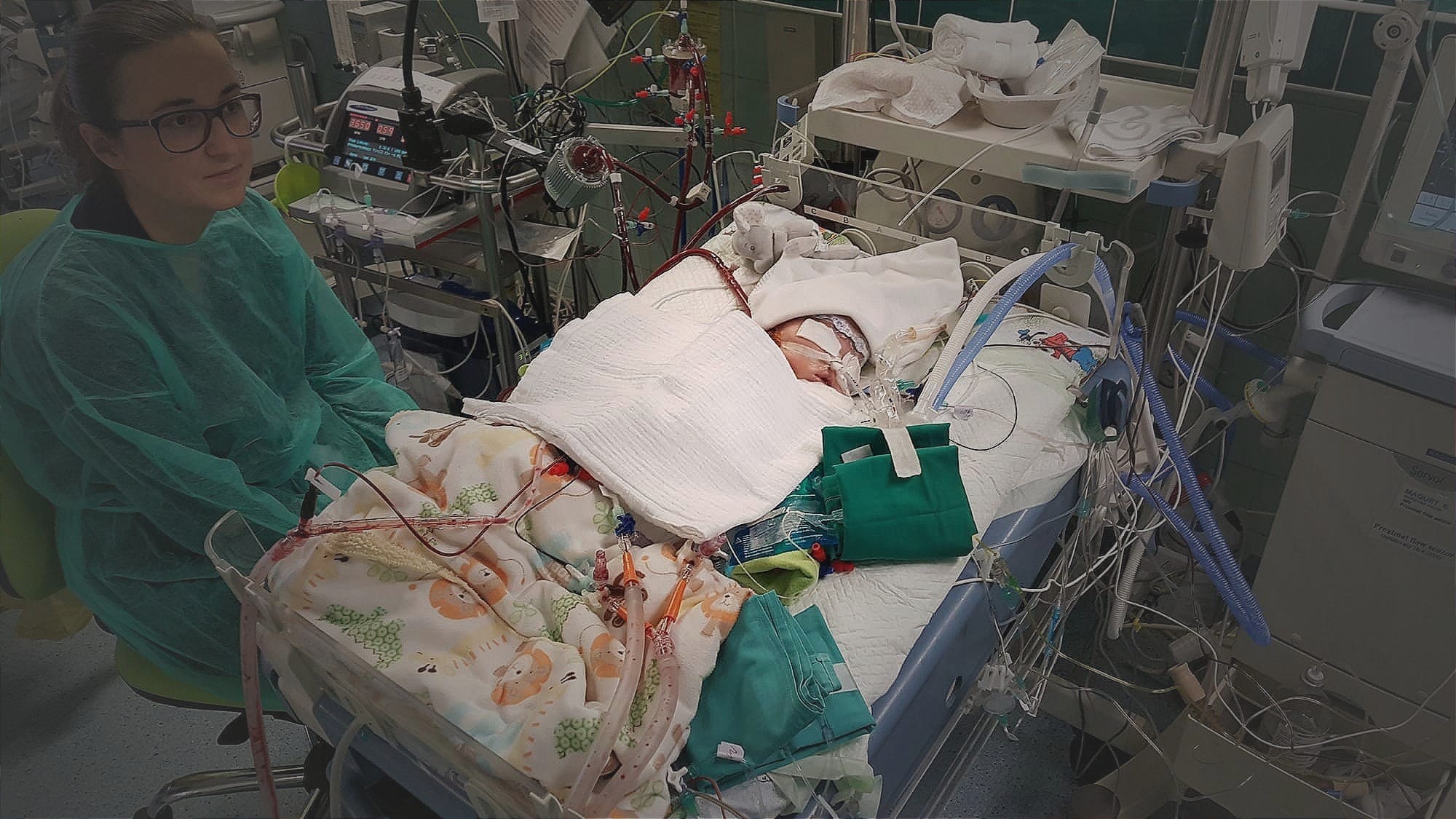
Just as she started to stabilize, the flu season hit. The hospital banned visitors, parents included. I lasted a week before fighting for an exception. Masked, gloved, and wrapped in a plastic robe, I sat by her bed daily, hands chapped from disinfectant (over)use, well aware a misstep in anti-viral protocol might be fatal not only to my girl but to any of the children sharing the Intensive Care Unit (ICU).
Slowly, things improved. Again. She pooped herself up to her neck, wearing a smile of relief right after being washed and prepped for the night shift.
I laughed until I cried.
Each patch, tube, or wire removed was a silent victory. Then the alarms would sound. Heart failure. Tachycardia. Withdrawal symptoms from morphine and other medication. Food rejection. Unexplainable cold sweats. Unusual cries. The roller coaster plunged again.
Success followed: lung rehabilitation, removal of breathing support, and relearning the sucking instinct. Every milliliter of milk consumed brought joy. Moments of connection, like her rewarding us with a smile or two, cuddling, or gazing into our eyes, slowly filled the void of our fears. More than two months after her birth, she had her first bath in a makeshift baby tub. It was far too small for her already, but she seemed to love soaking in the warm solution of water and hospital disinfecting soap.
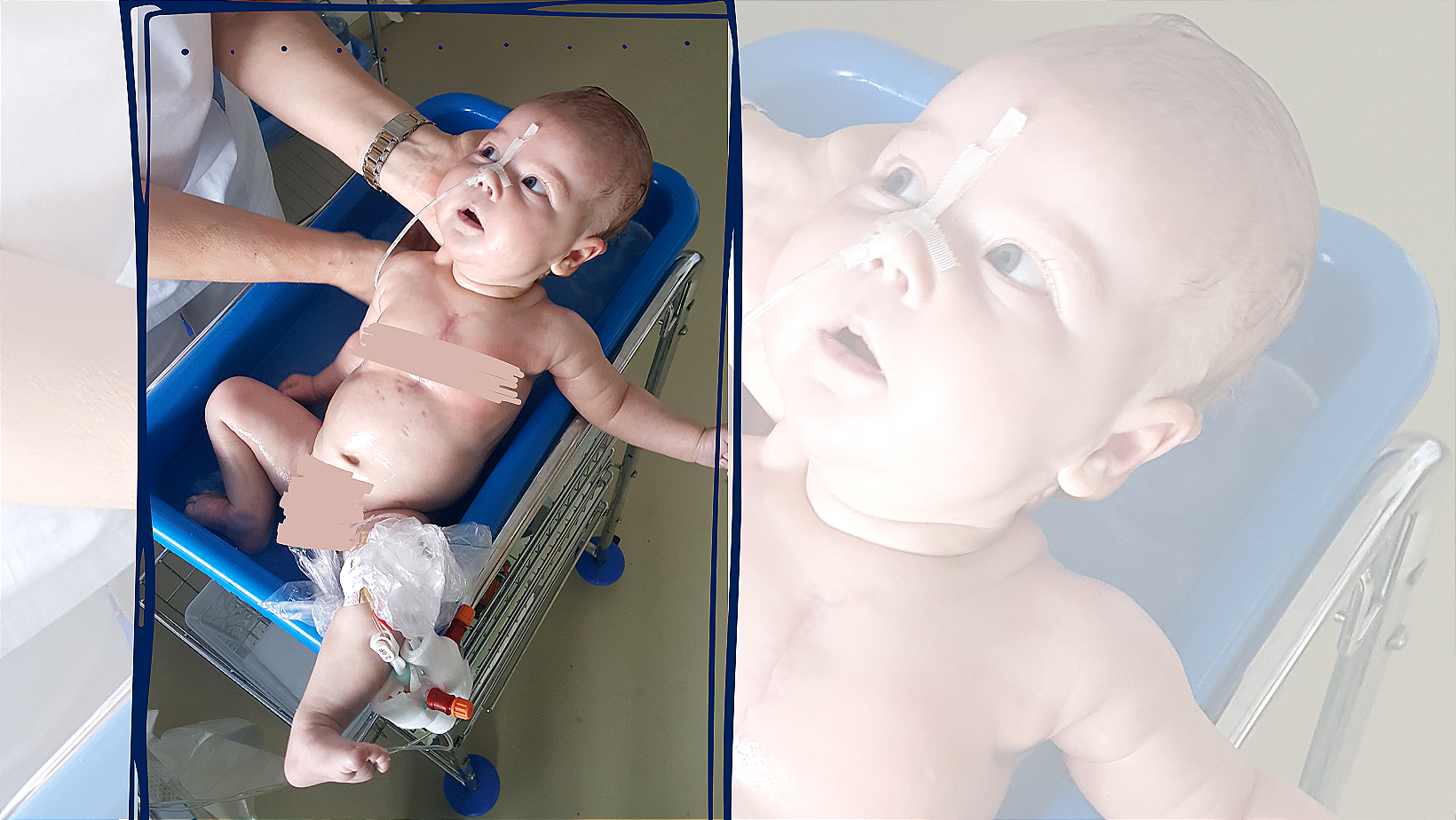
The ups were inevitably followed by devastating lows - like the day she turned completely purple. I was rushed out of the room while doctors encircled her bed. Moments later, an urgent transfer to the ICU and intubation turned hope into despair once again. She bounced back, and we celebrated. But the cycle repeated, leaving us clinging to the hope of bringing her home soon while bracing for more setbacks.
Life with Half a Heart
Finally, on day 205 of hospitalization, after two open-heart surgeries, regular episodes of life-threatening tachycardias, a few heart failures, multiple intubations, a jejunostomy placement (and repair), sepsis, rotavirus, several other infections, and countless setbacks, we were allowed to go home.
At home, I meticulously tracked her progress. I logged her daily temperature, weight, every dose of medication, milliliters of milk consumed (or rejected), bowel movements - complete with notes on consistency and colour - and every physical milestone she reached. We began physiotherapy to strengthen her barely-used baby muscles. My calendar quickly filled with appointments, from medical check-ups to elective activities designed to help my baby thrive.
My top priority was weaning her off the feeding tube. Doctors assured me they had seen children like Emanuela eventually eat well, though it might take years. I was determined to prove them wrong and have it done within months. I sought advice from anyone who had experience with tube weaning, calling and visiting every expert I could find. It felt like my chance to reclaim a sense of control. Then the tube broke, and replacement parts were unavailable. It was a flashback to the setbacks we faced in the hospital - a dance of two steps forward, one step back.

Once we were home, I believed life would be less rocky. With only one more planned open-heart surgery ahead, scheduled for when Emanuela turned three or four, I was certain we were heading toward normalcy. Sunny days, city strolls, ice cream, laughter, and playtime gave us glimpses of a life we had dreamed of. Our highs were very high.
Then, Emanuela would suddenly scream inconsolably, breaking into cries that left her utterly exhausted. Tachycardia. We would rush to the hospital, sometimes speeding through city traffic with hazard lights on, with the highway speed. Or, on other nights, tummy aches and vomiting would escalate into a diagnosis of life-threatening malrotation of intestines and volvulus, culminating in a last-minute, life-saving abdominal surgery just before her second birthday. Our lows were very low.
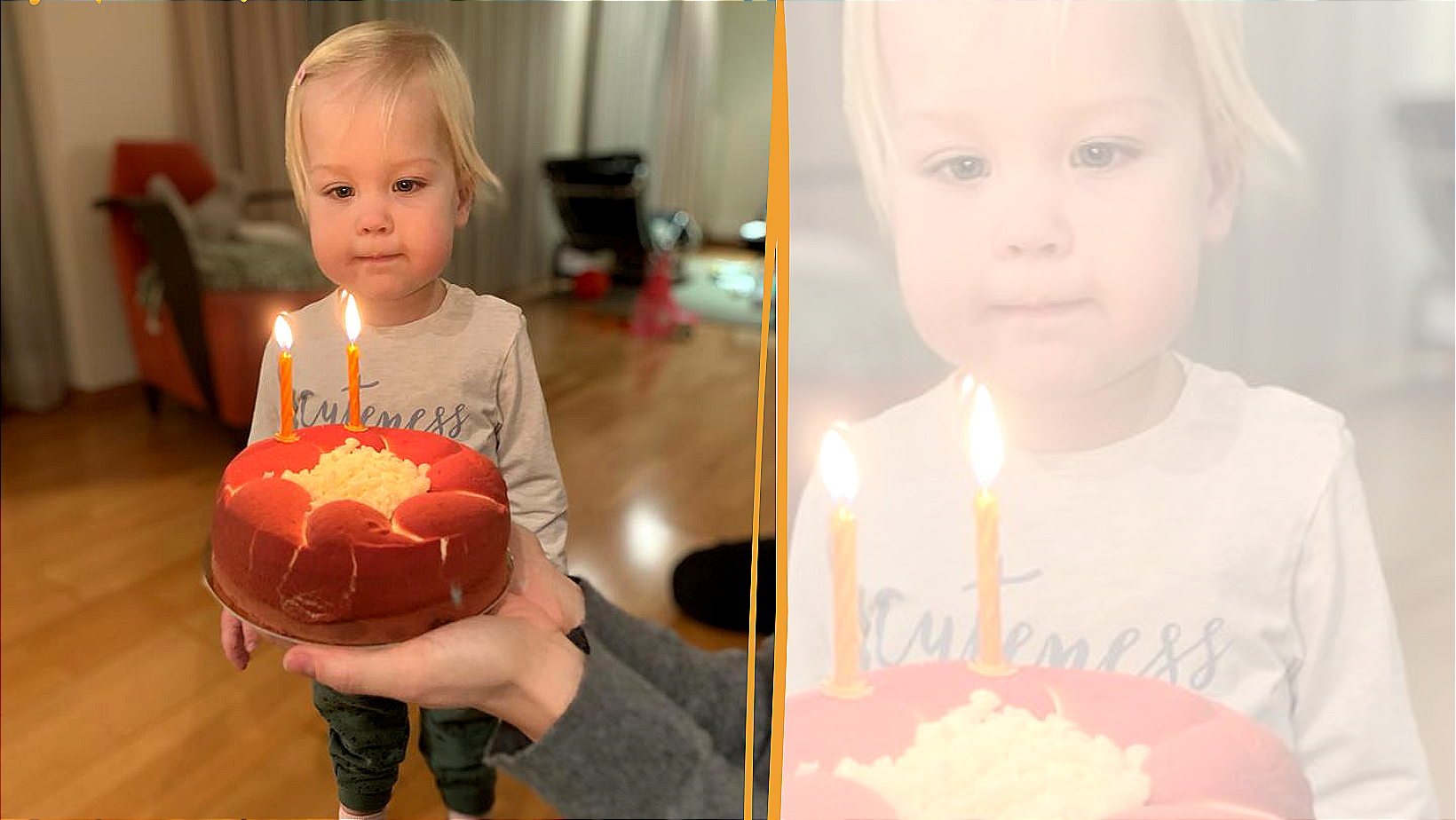
A Wonderful Life - As It Is
Today, medical emergencies are rare, and life feels less turbulent. But the muscle memory of those early years remains, along with the ever-present awareness that each year is a gift. Medicine continues to advance, and the odds for children like Emanuela improve. Yet, the shadow of fear lingers, reminding us to cherish every good moment.
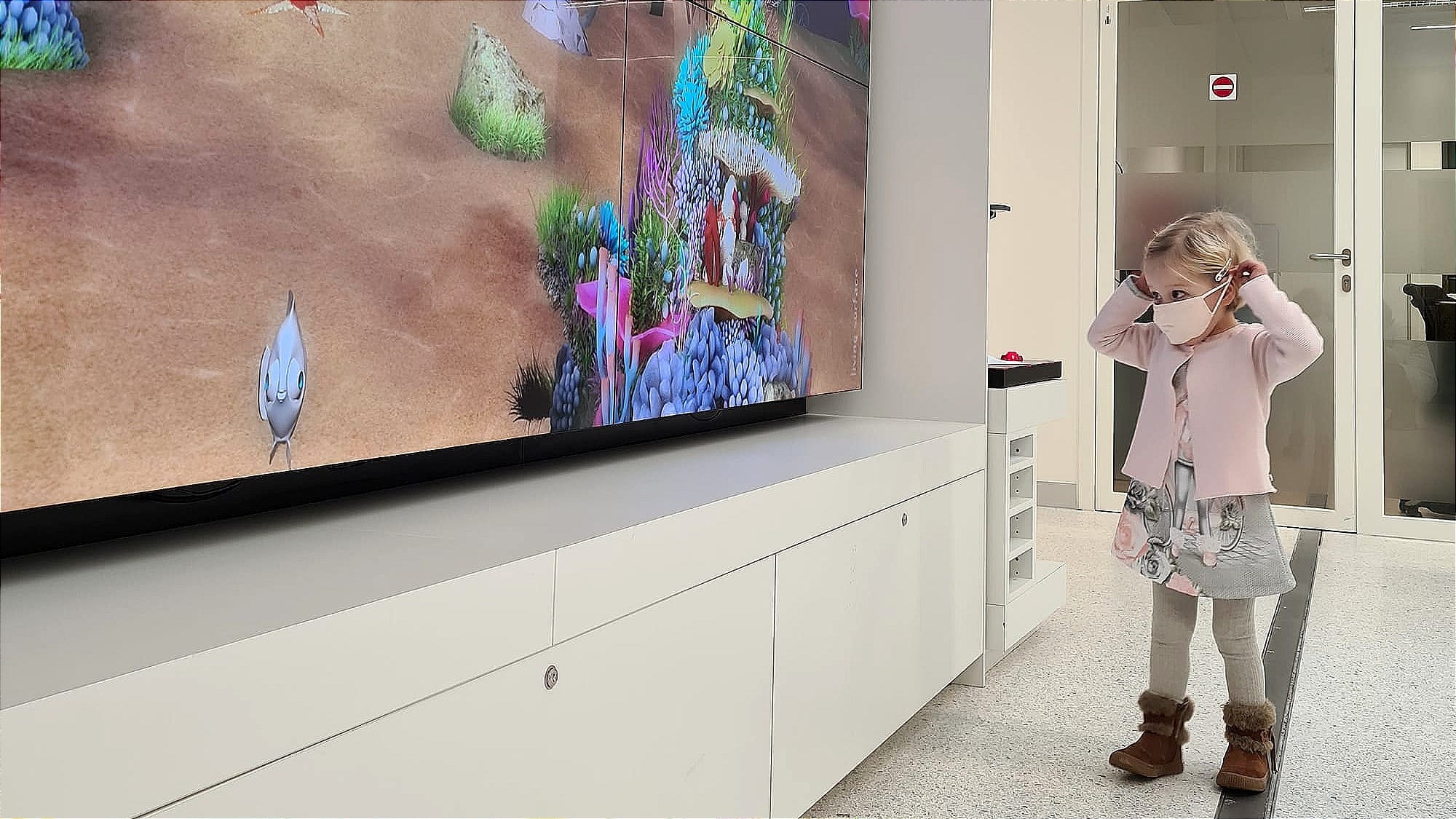
And so... as I strive to make peace with my deepest fears, I vow to celebrate my firstborn's birthdays fiercely. It is a day to honour her, but also a moment for my husband and me to acknowledge our journey and quietly whisper - job well done.
Emanuela celebrating her 4th birthday, though we've been cheering her on since day one! (January 2022)